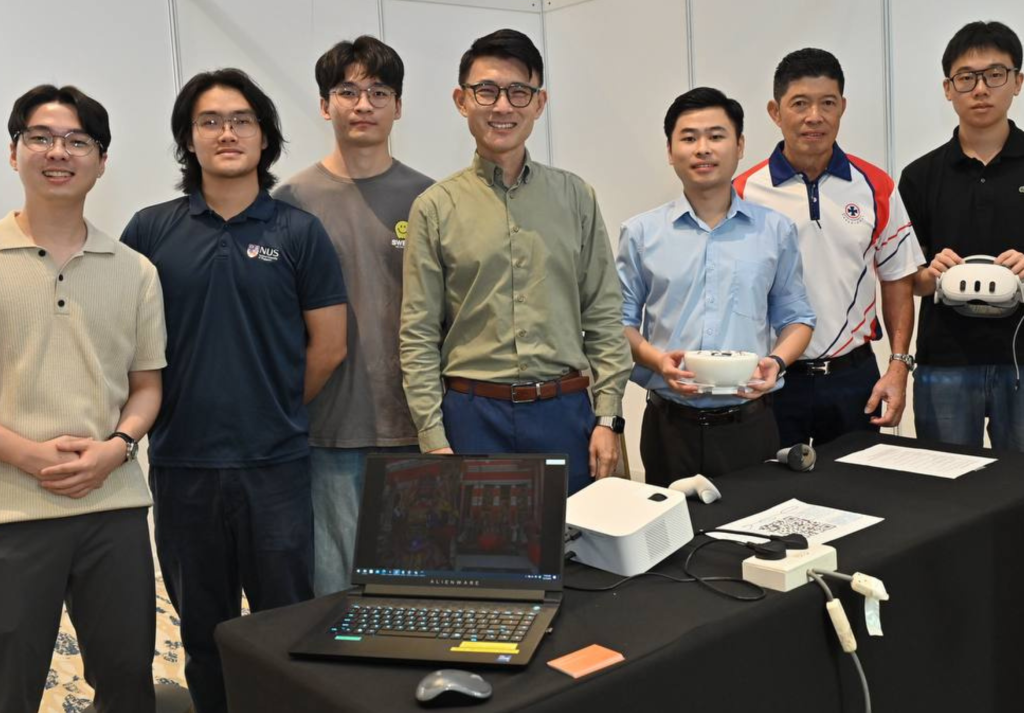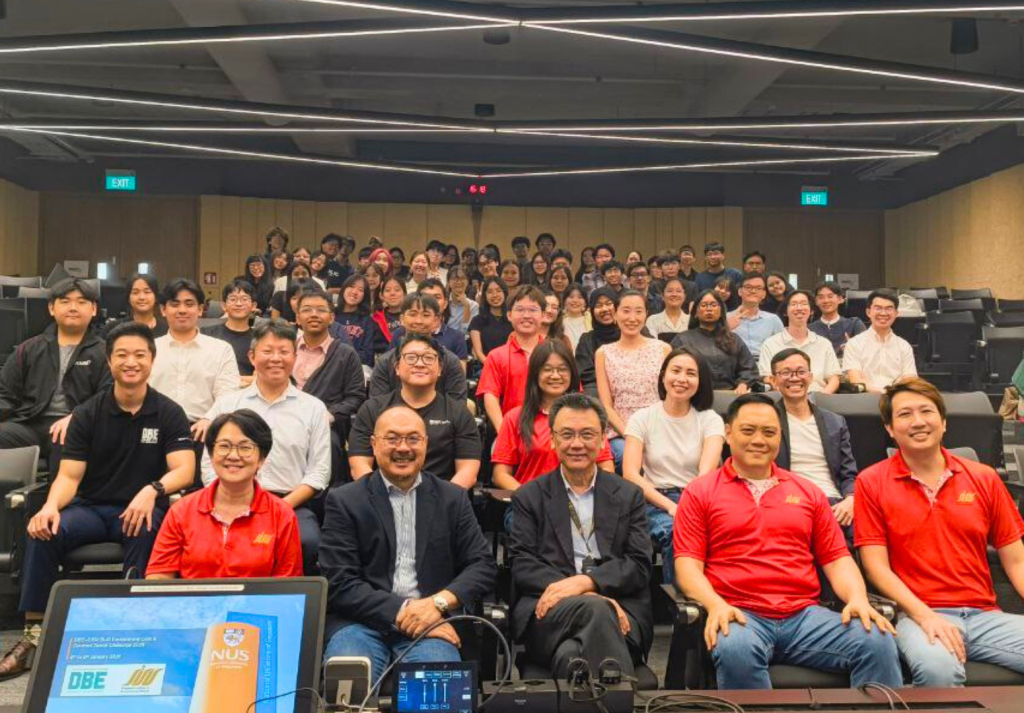
Two members of the College of Design and Engineering faculty have been honoured at the annual NUS University Awards.
Asst Prof Shao Huilin, from the Department of Biomedical Engineering and Institute for Health Innovation & Technology; and Assoc Prof Benjamin Tee, from the Department of Materials Science and Engineering, Institute for Health Innovation & Technology and N.1 Institute for Health were presented with the Young Researcher Award at an in-person ceremony on March 17.
The two were among eight award recipients at the ceremony recognising achievements and contributions in the areas of education, research and service to NUS, Singapore and the global community in 2021.
"I am deeply honoured by this award," Asst Prof Shao said. "It recognises the tremendous efforts by my team members and collaborators. It also motivates us to continue to innovate new technologies and impact patient care."
Assoc Prof Tee said: "I am deeply grateful for receiving this prestigious award and for the support by the University to continue pushing the boundaries of science, technology and innovations to positively impact the world. This award is also a testament to the determined diligence and creativity of all my team members, students and collaborators to bring the ideas in our research laboratory to reality."
Professor Aaron Thean, Dean of the College of Design and Engineering said: "My heartiest congratulations to Assoc Prof Benjamin Tee and Asst Prof Shao Huilin on this well-deserved award. Ben has been pushing the technological boundaries of novel electronic materials and smart sensors towards applications of next-generation robotics. Huilin has combined biological science and electronics to advance disease diagnostics using portable kits. Both have made major contributions so early in their career that benefit a wide range of applications from healthcare to artificial intelligence."
"These two researchers exemplify the high-impact research at the College of Design and Engineering and driving new technological frontiers to truly improve lives here in Singapore and around the world."
Offering his congratulations to all award winners, NUS President Professor Tan Eng Chye said this year's recipients had "achieved peaks of excellence in their pursuits and exemplified the enduring NUS values of innovation, excellence and resilience."

Asst Prof Shao Huilin is a rising star in the field of molecular diagnostic technologies. She is known internationally for her development of multiple biological and physical nanotechnologies for disease detection.
Her achievements include:
- Invention of multiple biological and physical nanotechnologies for molecular diagnostics.
- Developed enVision, molecular switches that can directly measure nucleic acids of infectious diseases as well as COVID-19 in 30 minutes at room temperature.
- Established the Amplified Plasmonic Exosome system, a highly sensitive blood test for early detection of Alzheimer's disease even before the onset of clinical symptoms.
- Pioneered the Sequence-Topology Assembly for Multiplexed Profiling technology to determine protein distribution in cells and evaluate cancer aggressiveness.
- Founded a biotechnology company to support the translation and commercialisation of molecular diagnostics technologies.
- Garnered over $5 million research grants from the National Medical Research Council, Ministry of Education and NUS.
She has also published 20 peer-reviewed papers under NUS, including publications in high impact journals such as Nature Nanotechnology, Nature Biomedical Engineering, Nature Communications and Science Advances

Assoc Prof Benjamin Tee has made critical contributions to the field of soft materials and sensors for applications in robotics and healthcare. In part inspired by Star Wars and Star Trek science fiction of his youth, his research aims to advance electronic skins to enable new generations of intelligent robotics, prosthetics and human-machine interfaces.
His research achievements include:
- Invention of the world's fastest electronic skin nervous system that is 1,000 times more responsive than the human nervous system, for medical and neuroprosthetic applications.
- Pioneered the development of a self-healing, transparent and water-resistant electronic skin that can self-repair autonomously at room temperature.
- Developed a self-healing electronic material capable of emitting light at low operating voltage to create damage resilient soft lighting devices for next generation human-machine interfaces.
- Co-founder of Hannah Life Technologies and Privi Medical; raised more than $3 million.
- Secured more than $9 million of research grants from the National Research Foundation, AiSkin, Agency for Science, Technology and Research, and Clarins.
- His innovations have led to nine patents filed, with four exclusively licensed to industry.
To date, he has also published more than 20 peer-reviewed papers with over 500 citations, including publications in high impact journals such as Nature Materials, Nature Electronics, Science Robotics and Advanced Materials.





